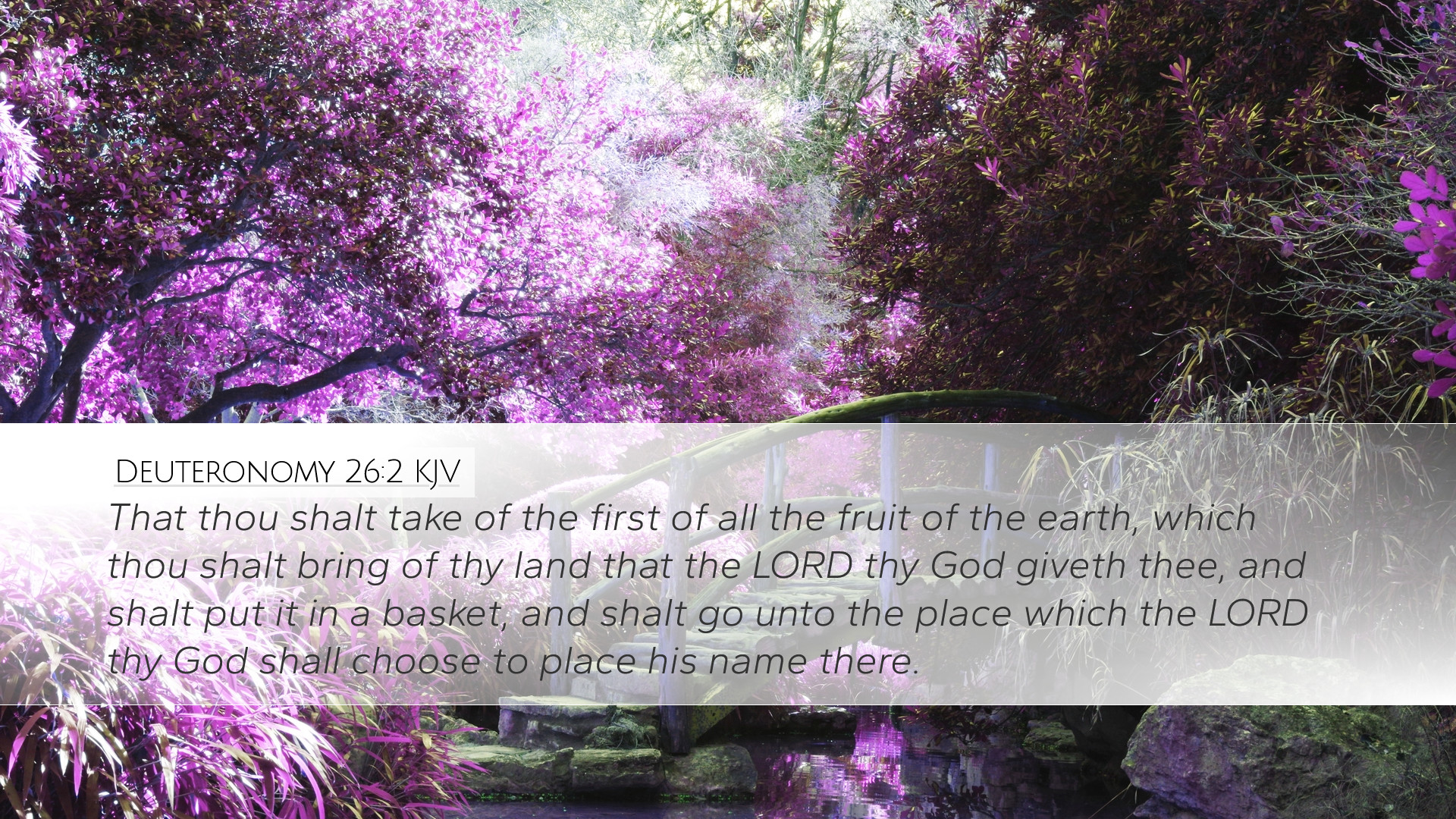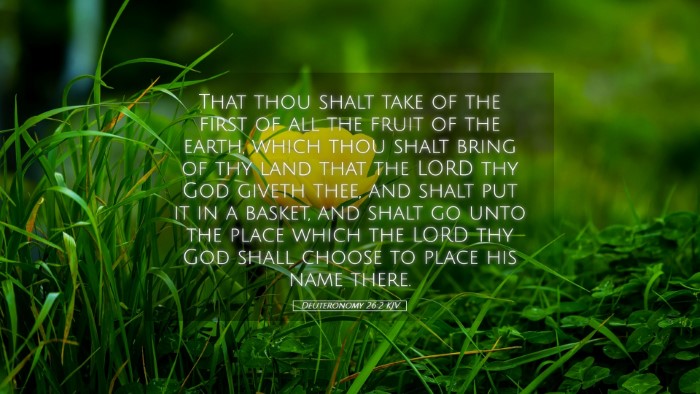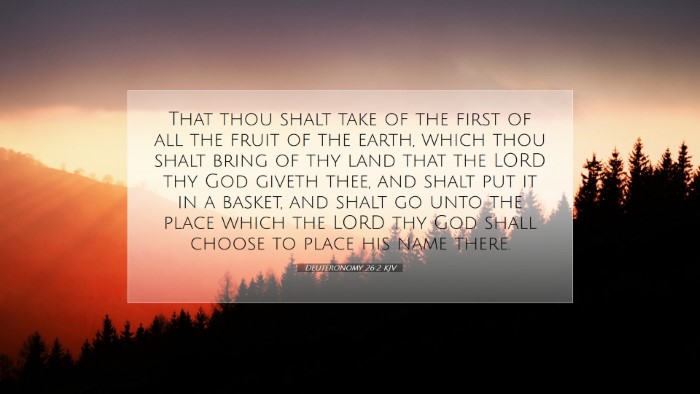Commentary on Deuteronomy 26:2
Deuteronomy 26:2 states, "That thou shalt take of the first of all the fruit of the earth, which thou shalt bring of thy land that the Lord thy God giveth thee, and shalt put it in a basket, and shalt go unto the place which the Lord thy God shall choose to place his name there."
Summary and Context
This verse occurs within a passage that outlines the laws and practices for Israel’s worship and relationship with God after entering the Promised Land. The command to bring the first fruits signifies the gratitude Israel must maintain towards God for His providence and blessings. The setting of this command highlights not only obedience but the centrality of worship in the Israelite community.
The Significance of First Fruits
The concept of first fruits in the Bible serves multiple purposes:
- Gratitude: Bringing the first fruits acknowledges that everything belongs to God and is a testament to His provision.
- Faith: This act demonstrates faith in God’s ongoing provision for the future harvest. Presenting the first and best expresses trust that God will continue to provide.
- Covenantal Relationship: The first fruits are an expression of the covenant relationship between God and Israel. As a people chosen and set apart, their acts of worship and obedience to God were fundamental to their identity.
Insights from Matthew Henry
Matthew Henry emphasizes the importance of the first fruits as a season of joy and gratitude. He notes that bringing the first fruits to God brings the people into a closer relationship with their Creator, and it is a celebration of God's goodness toward them. Henry also highlights that this practice marks the distinction between Israelites and the nations around them, as it legitimizes God's role in their lives and acknowledges His sovereignty.
Insights from Albert Barnes
Albert Barnes focuses on the practical implications of this command. He contemplates the act of bringing the first fruits as a means to keep the Israelites mindful of their dependence on God. Barnes notes, "This act was a public testimony to the gifts of God." He reinforces the idea that it is not merely an individual act, but one that affirms group identity within Israel's communal worship context. He views this act as an integral teaching moment for future generations about the necessity of recognizing and honoring divine generosity.
Insights from Adam Clarke
Adam Clarke provides a detailed exposition on the logistics of offering first fruits. He draws attention to the specific location where the offerings were to be taken, which is Jerusalem. Clarke suggests that the act of physically carrying the produce to a designated place emphasized the seriousness of the worship and the effort that went into honoring God. He aligns the practice of dedicating the first fruits with broader themes of sacrifice, devotion, and communal responsibility, noting that this act fosters an atmosphere of worship and commitment to God’s ways.
Theological Reflections
Drawing insights from these commentators, we can see the rich theological tapestry woven into this simple command. The repetitive nature of offering first fruits also illustrates the rhythm of giving and receiving in life with God. It serves as a reminder that God's blessings, however abundant, ought to return to Him in gratitude. Furthermore, this principle transcends the Old Testament, inviting reflection on how Christians can apply the act of first fruits in their stewardship and worship today.
Applications for Pastors and Leaders
For pastors and church leaders, Deuteronomy 26:2 serves as a base for teaching about generosity, gratitude, and communal worship. Here are some applications:
- Encourage Generosity: Emphasize the importance of giving the first and best, not just monetarily, but in all aspects of life.
- Teach Dependence on God: Regularly reinforce the congregation's reliance on God for all things and how acknowledgment of this shapes character and community.
- Focus on Worship Logistics: Ensure that worship practices incorporate elements that symbolize giving and gratitude, enriching the corporate worship experience.
Conclusion
Deuteronomy 26:2 provides profound insights for understanding the nature of worship, stewardship, and God's provisions. The insights from public domain commentaries deepen our appreciation for this verse’s implications for both ancient Israel and contemporary faith communities. As we consider the principle of first fruits, may it inspire our worship and our relationships with God and one another.


